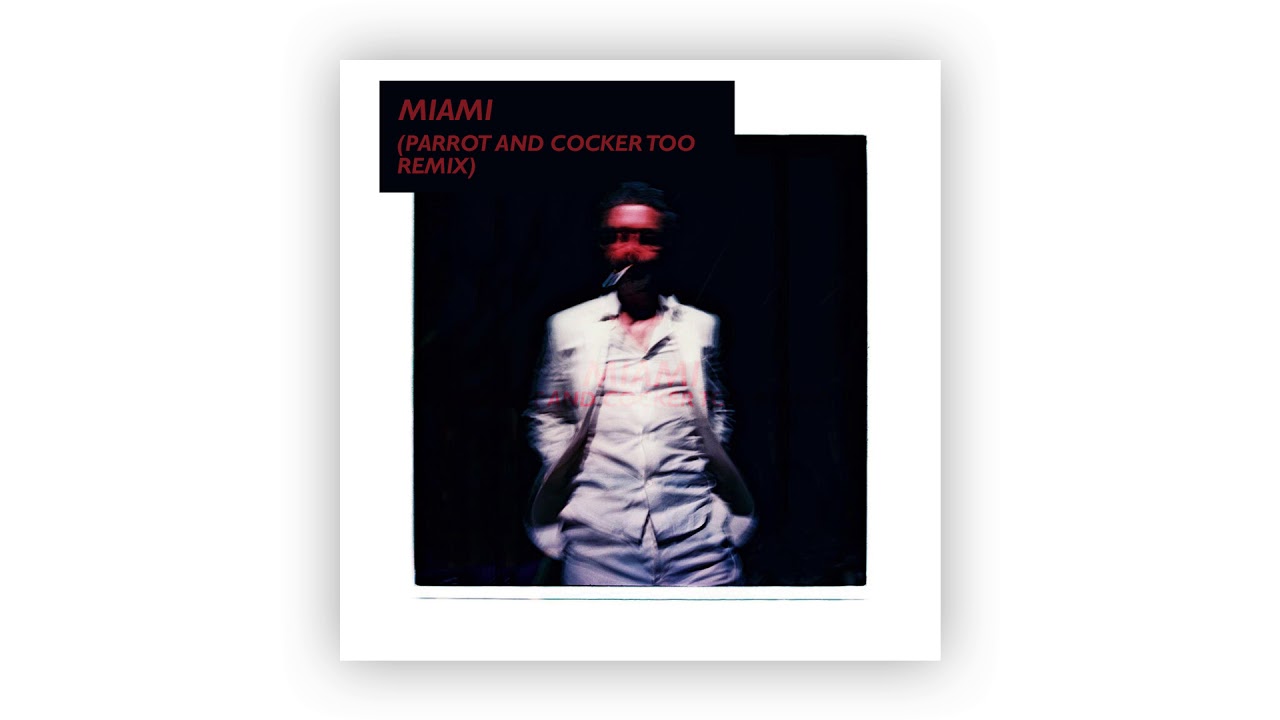Baxter Dury’s new album sounds like a midlife crisis. A glorious, fucked-up, Maserati-driving, womanising, cocaine-snorting early tango with the male menopause. It’s somehow beautiful and heart-rending, wonderfully human; at times it’s sexy and at others, it’s repulsive. There’s an air of desperation throughout. It’s a concept album of sorts where Dury has taken a recent painful split as inspiration, then projected that pain onto a character who is a grotesque of himself, an uber-geezer in denial who externalises his threatened masculinity.
“I don’t think you know who I am,” he growls on opener ‘Miami’. “I’m the sausage man… I’m a shipping tycoon / Full of promise and cum.” The whole verse is deliciously inventive and absurd: “The shadow licker / I’m the tiny little ghost that features in your despondent moments / The timeless whisper / The glassy dude / I’m the science of everything that’s wrong / And I’m making you doubt everything you love / But I’m here to stay / I’m Miami.”
On paper it’s abstractly poetic, but with Dury’s Danny Dyer-like rasp set over a louche disco beat juxtaposed against Jean-Claude Vannier-style strings it is truly something to behold.
Baxter Dury, born in 1971, just about qualifies for middle age. He released his first album, Len Parrot’s Memorial Lift, in 2002 aged 30, so he’s never been a particularly youthful singer, although he had a child star moment as a five-year-old on the cover of dad Ian Dury’s New Boots and Panties!! in 1977. Dury Sr was a latecomer to notoriety himself, with the aforementioned album his breakthrough at the relatively ancient 35. Ian Dury might have become a household name in the UK, but Baxter has achieved something his father never managed – a career in France. His last album It’s a Pleasure just missed the top 40 and Prince Of Tears should build on that success. (For the record, Ian Dury was all set to launch in France until label supremo Eddie Barclay discovered he was having an affair with his girlfriend and put an end to his ambitions there and then.)
If Baxter is now a pop star across the channel, it stands to reason that Prince of Tears sounds more French – or at least more Gainsbourgian – than anything he’s previously done. The swooping strings? Check. The carnal funk? Check. The growly sprechgesang offset by a smooth female vocal? Check. There are even little borrowed motifs, such as the electric guitar two-string oblique bending on ‘Tears’ that’s a feature of Histoire de Melody Nelson. Perhaps more significant than the musical content is the concept and circumstances. Gainsbourg was 43 when he recorded that album, and according to orchestral arranger and writing partner Jean-Claude Vannier, he was “feeling very old”. The Lolita concept with an ageing dandy in a Rolls-Royce is again a grotesque of Serge, whose partner was the 21-year-old Jane Birkin. Serge owned a Rolls-Royce Silver Ghost himself, but he couldn’t drive and ended up using it as an ashtray.
There’s something about Dury’s character that also recalls John Self in Martin Amis’s Money, boozy sweat oozing out of his pores, the crassness and craziness and lack of self-awareness. “The guy in the first song is a completely delusional person who thinks he’s a gangster,” says Dury. “The female vocals always know what’s actually going on though, and they aren’t having him.”
The women’s voices are crucial – Rose Elinor Dougall sings on the groove-laden ‘L’hôtel particulier’-like ‘Porcelain’, Madelaine Hart features across the rest of the album. They give a clearer perspective and act as a counterpoint to the fantasies of Dury’s character. At times they’re sympathetic, at others exasperated, and finally – with ‘Prince Of Tears’ at the conclusion – ready to move on. Along the way there are adventures, or misadventures. ‘Mungo’ is all sleepy irritation at the protagonist for drinking-and-dialing. ‘Oi’ recounts a tragicomic encounter with a former friend (“But I’ve been thinking about you, and wondering if you’re in prison… I hope you survived somehow and didn’t turn into a total cunt”). ‘Wanna’ is perhaps the most pathetic of all, Dury’s voice cracking with emotion while the violins try their best to drag him up from his slumber.
Prince Of Tears is at times moving, occasionally hilarious, and always deeply human. It works best on the slower, hookier, groove-based numbers – the perky triumvirate of ‘Listen’, ‘Almond Milk’ (featuring Sleaford Mods’ Jason Williamson) and ‘Letter Bomb’ are a little too much all together, though they might make more sense if you have to flip the vinyl over after ‘Almond Milk’. Still, this album is the closest Dury has come yet to a cohesive chef d’oeuvre.
Recently there have been a number of concept albums loosely based around the tribulations of middle age. Martin Carr’s New Shapes Of Life, also out this week, was written during an eight month bout of depression; it’s a hypnotic and deeply affecting listen and probably the finest album he’s ever made. LCD Soundsystem have always been about dance music getting older, and American Dream is a little older still, a little wiser and certainly less high – and their philosophy that we may as well dance because everything is fucked seems even more appropriate in 2017.
Jarvis Cocker, who has remixed ‘Miami’ with Sheffield DJ Parrot, slipped some of his own concerns with loneliness and mortality and sex (always sex) into his Room 29 album with Chilly Gonzales earlier in the year. And another Dury collaborator, Jason Williamson, is now perpetually in a band of conceptual underdogs, despite the fact they’re doing pretty well for themselves. Sleaford Mods convey the Godot-esque nihilism of living in post-Brexit Middle England better than anyone else right now. And not to forget Richard Dawson, whose retreat into medievalism on his latest album Peasant is one in the eye for nationalists who imagine the middle ages as an idyllic era where racists could be proud and optimistic.
There are a lot of grumpy, depressed, confused middle-aged white men floundering right now, as they swirl around the late-capitalist-patriarchy plughole with Trump and Johnson and Farage flashing before their eyes. The best among them are taking a personal inventory, working to redefine their place. As ever, there are options to proceed. You can blame the harassed, the demonised and the underrepresented. You can imagine that a playing field levelling out is a playing field working against you. Or, you know, you can examine your own feelings of inadequacy and make a great album – an uncomfortable, great album. “Prince of Tears, don’t leave me like this, laughing at you,” sings Madeleine Hart over and over as the outro fades on the final track, as if derision is the worst thing a man can be left with; or as Margaret Atwood once wrote: “Men are afraid that women will laugh at them. Women are afraid that men will kill them.”




